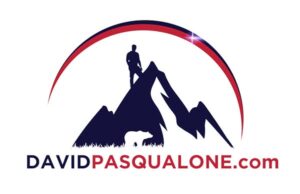You’ve built the website, finalized your product, and even mapped out your launch plan. Everything looks ready, until the email hits: Your merchant account has been declined. No explanation, no support, just rejection. For entrepreneurs who’ve poured their time, money, and heart into building something meaningful, this kind of setback stings when Your Online Business Keeps Getting Rejected.
The truth is, it’s happening more often than most people realize. Across the digital business world, countless online ventures are being turned away by payment processors simply because they fall under the vague umbrella of “high-risk.” It’s a label that has little to do with the person running the business, and everything to do with how banks and financial systems operate behind the scenes.
But here’s the good news: being rejected doesn’t mean your business is broken. It just means you’re navigating a system that wasn’t designed with modern entrepreneurs in mind. This article will break down why online businesses get rejected, what “high-risk” really means, and, most importantly, how to move forward with confidence, clarity, and the right partners by your side.
What “High-Risk” Really Means in the Payment World
In everyday language, “high-risk” might sound like a business on the edge of legality or ethics. But in the payment processing world, it simply means a business that’s statistically more likely to experience financial disputes, especially chargebacks.
It’s not a judgment of character. It’s a risk profile.
Payment processors use algorithms and industry data to assess whether working with a business could lead to financial loss. If that business is more likely to have chargebacks, legal grey areas, or customer complaints, whether because of the product type, customer base, or delivery model, it’s flagged as high-risk.
The list of affected industries might surprise you. Coaching and consulting services, CBD products, online courses, ticket sales, subscription boxes, adult wellness, travel bookings, and even supplements are all commonly labelled high-risk. These aren’t shady businesses. They’re legitimate ventures run by passionate, skilled professionals.
But because of chargeback trends or regulatory scrutiny, they face more roadblocks than traditional businesses.
The result? Many honest entrepreneurs find themselves shut out of traditional payment platforms through no fault of their own. And without payment processing, it’s nearly impossible to run an online business.
Understanding what “high-risk” really means is the first step to breaking through the barrier and finding providers who see the full picture, not just the category label.
Common Reasons for Merchant Account Rejections
Receiving a rejection from a payment processor can feel personal, but often, it’s just a matter of technicalities. Most merchant account applications are reviewed by risk departments using strict checklists. If something’s missing or misaligned, it can trigger an automatic “no.”
Here are some of the most common reasons businesses get turned away:
- Missing or unclear business documentation.
Banks and payment providers want to see legitimacy. If the business doesn’t have clear terms and conditions, privacy policies, product descriptions, or refund policies on its site, that’s a red flag. - Operating in a flagged industry.
As mentioned earlier, some industries are categorised as high-risk by default. Even if the product is fully legal and ethical, its association with past industry chargebacks or legal scrutiny can lead to rejection. - High chargeback potential.
If a business has a history of payment disputes or if the model involves recurring billing, future fulfilment, or emotionally driven purchases, it may be considered too risky. - No processing history or banking relationship.
New businesses with no established revenue trail may be seen as unstable. Ironically, this makes it harder for startups to gain traction without outside help. - Mismatched business details.
Any inconsistency between the business name, domain, contact info, or documentation can hold up the application or result in an outright decline.
Fortunately, most of these issues can be addressed. But the key is knowing what providers are looking for and making the case clearly from the start.
Building Trust to Strengthen Your Application
While the label “high-risk” might sound final, it’s not a closed door, it’s an invitation to build trust. At the heart of every approval process is a simple question: Can this business be trusted to handle money well and serve its customers honestly?
That means your application isn’t just about paperwork; it’s about presentation and perception. Payment processors want to see professionalism. They’re more likely to approve merchants who make trust obvious and provable.
Start with clarity. Make sure your website includes terms and conditions, a privacy policy, and a clear refund process. Display shipping timelines, support contact information, and product or service descriptions that leave no room for guesswork. These are not just formalities, they signal reliability.
Consistency matters, too. Your business name, website domain, legal entity, and bank details should all align. Anything that looks inconsistent can be interpreted as a risk.
Beyond the technical elements, trust is also built over time, through reviews, testimonials, and strong customer service. Every positive experience creates a ripple effect of credibility, both with customers and financial providers.
In today’s landscape, building trust is one of the most valuable assets any business can develop. It’s also one of the strongest foundations for getting and keeping the right payment solutions in place.
Why You Need the Right Payment Partner
After facing multiple rejections, many business owners start looking for anyone willing to approve them. It’s understandable, but it’s also risky. Not all payment processors are created equal, especially in the high-risk space.
Some services will accept nearly any business, but they do so with steep fees, vague terms, and poor support. Others might freeze accounts without notice, delay payouts, or include hidden clauses that can cripple cash flow. What looks like a solution today can quickly become a liability tomorrow.
Choosing a payment partner shouldn’t just be about getting a “yes.” It should be about long-term support, clear expectations, and transparent pricing. A good processor will take time to understand your business model, help you stay compliant, and offer tools to reduce chargebacks and fraud.
When evaluating options, look at more than just the onboarding process. Ask about how disputes are handled, what kind of reporting is available, and how responsive their support team is. If the answers are vague or defensive, that’s a red flag.
The right payment partner is exactly that, a partner. One who’s invested in your growth, stability, and success. They won’t just process transactions. They’ll protect your business.
The Role of High-Risk Payment Gateways in Helping You Grow
Once your business is labelled “high-risk,” it’s easy to feel boxed in. But that label doesn’t have to be a roadblock. In fact, it can lead you to smarter systems and partnerships that actually support long-term growth, if you know where to look.
High-risk payment gateways are designed specifically for businesses that don’t fit the traditional mold. These platforms understand the unique challenges of high-ticket items, digital products, recurring billing, and emerging industries. More importantly, they’re built to handle those challenges without putting your business at risk.
A quality gateway will offer tools to reduce chargebacks, detect fraud before it happens, and automate payment processes so you’re not stuck chasing invoices or manually processing orders. Many also provide flexible integration with major e-commerce platforms, meaning you can keep your checkout smooth and user-friendly.
Best of all, the right high-risk provider won’t penalize you for being different, they’ll empower you to scale securely and sustainably. This is why choosing the best high-risk merchant services matters. It’s not just about access to payment processing, it’s about access to a system that protects your reputation, your revenue, and your customers.
With the right gateway in place, you can stop worrying about whether payments will go through and start focusing on what really matters: delivering value, building relationships, and growing your business with confidence.
Rejection Isn’t the End
Getting rejected doesn’t mean your business isn’t worthy; it means you’re being called to grow smarter. With the right tools, partners, and mindset, you can overcome the label and build something resilient. Stay committed, stay transparent, and remember: every “no” brings you one step closer to the right “yes.”
Want More Info? How about a Free 30-minute Consult with Ascend?
Schedule Your Free Consultation Now!
Special thanks to the following source(s) for the image(s) used in this article:
Enjoy a Great Podcast? ?
Check out this Remarkable episode to continue the conversation and help you grow!

Staying Actively Engaged, the Power of Positivity, & the Voice of Generational Wisdom w/ Lou Vickery
"In your business, and in my business, you better have a good 'forgetery' to survive." ~ Friendly Neighborhood Police Officer to Lou Vickery after someone hit a game winning grand slam off of him in the 9th inning. WATCH THE PODCAST Click the play button ▶️ above 👆 to watch now! Please Note: You can skip any ads after 5-seconds by clicking, "Skip Ad" in the bottom-right corner of the video window. These are not ads we control, or necessarily endorse. They are delivered by the video hosting...
 Listen Now!
Listen Now!
THANKS FOR LISTENING TO THE REMARKABLE PEOPLE PODCAST! ?
Click Here for More Remarkable Episodes on Almost Any Topic You Can Imagine.?
DISCLAIMER: This is an affiliate article. We post affiliate articles with the intent of helping you grow. They are not written, researched, or necessarily endorsed by our team. They are simply content submitted to us by what appears to be respectable affiliate sources, people, and organizations, which upon initial review, seem solid and helpful to our community, so we post them. It is up to you to personally verify the facts, links, organizations mentioned, the validity of the information presented, and any/all claims made in the article(s). To report an issue with any of the information, links, or organizations mentioned in this, or any content posted on our website, or if you simply have a question or need something we can help you with, please contact us now.







